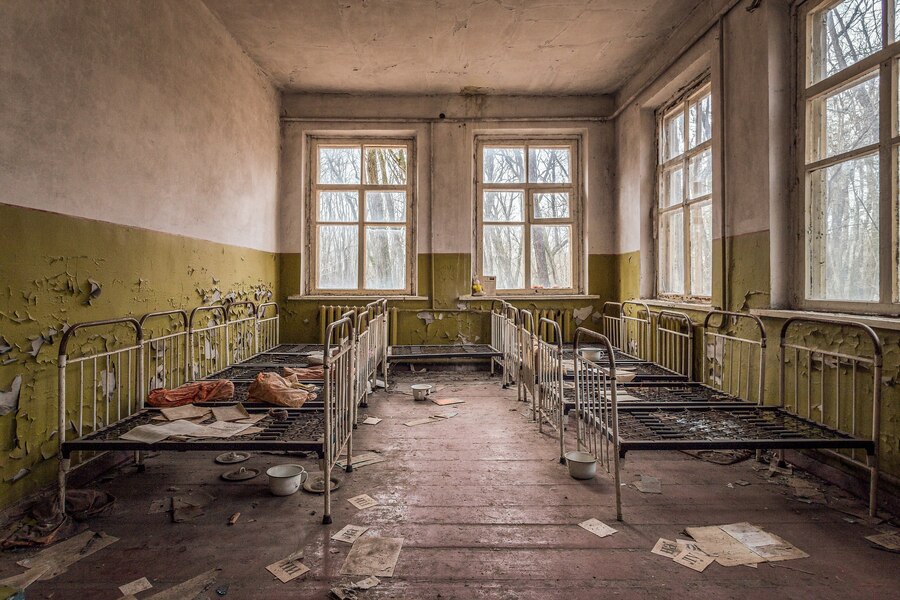
Parasited Motel Malaise is a term that has emerged in recent years to describe an unsettling and often uncomfortable experience that guests face when staying at certain motels, often characterized by the infestation of pests, unhygienic conditions, and the overall negative impact this has on their health and well-being. This phenomenon has garnered attention due to increasing reports of parasitic infestations in motels across the world. Guests have found themselves dealing with unsanitary conditions that make their stays far from enjoyable. Parasited Motel Malaise can lead to a series of health issues and create a sense of dread among travelers who are unfamiliar with what they might encounter at their accommodation.
Understanding the term “Parasited Motel Malaise” requires a deep dive into the factors contributing to its rise. It encompasses not only the physical presence of pests but also the psychological impact of staying in a space that is unsanitary, unclean, and potentially dangerous. Motels are often chosen by travelers looking for affordable options, but this affordability sometimes comes at the expense of cleanliness and safety. In this article, we will explore the various elements that contribute to the Parasited Motel Malaise, its effects on the hospitality industry, and ways to prevent it from affecting travelers.
What is Parasited Motel Malaise?
Parasited Motel Malaise refers to the negative effects caused by the presence of pests and poor conditions in motels. This term is a combination of “parasite,” which represents the unwanted pests, and “motel malaise,” which signifies the discomfort and illness that can stem from staying in such establishments. The malaise encompasses not just the physical symptoms caused by pests but also the emotional and mental toll it can have on guests.
Pests such as bedbugs, cockroaches, fleas, and rodents are common culprits in motels where cleanliness and maintenance are neglected. These parasites can cause various health problems, including skin irritations, allergic reactions, and respiratory issues. In addition to the physical discomfort, the presence of pests can create an atmosphere of unease, where guests may feel that they are staying in unsafe and unhygienic conditions. The psychological effects of this malaise can linger long after the stay, leaving travelers with an aversion to motels in general.
The Impact on Health

One of the primary concerns surrounding Parasited Motel Malaise is the impact on health. Pests, especially bedbugs, are notorious for causing itching and irritation due to their bites. Bedbug infestations can lead to red, swollen bumps on the skin, which may become infected if scratched excessively. Cockroaches, on the other hand, are known to trigger asthma and allergic reactions, especially in individuals with pre-existing respiratory conditions. Their droppings and body parts can become airborne, causing discomfort and illness.
Fleas are another common pest found in motels, particularly in areas with pets. Flea bites can result in itching, swelling, and discomfort, and in some cases, they may transmit diseases such as typhus. Rodents, including rats and mice, can carry harmful bacteria and viruses that can be transmitted to humans through contact with their urine or feces. The presence of these pests creates an environment where guests are exposed to a higher risk of illness and infection, making it essential for motels to take appropriate measures to prevent infestations.
Beyond physical health, the psychological impact of staying in a parasited motel should not be underestimated. The anxiety and stress caused by the discovery of pests in the room can leave guests feeling unsettled, uncomfortable, and vulnerable. This sense of unease can result in a disrupted stay, ruining the overall experience and making it difficult for guests to relax or enjoy their time at the motel.
The Causes of Parasited Motel Malaise
Parasited Motel Malaise is the result of a combination of factors that contribute to the infestation of pests in motels. One of the primary causes is poor maintenance and cleanliness. In many cases, motels that experience frequent pest problems fail to regularly inspect and clean their rooms, allowing infestations to go unnoticed until they reach a level where guests begin to complain. These establishments may not invest in regular pest control measures, allowing pests to thrive in the unsanitary environment.
The affordability of motels often leads to a compromise in quality. Budget-friendly accommodations may prioritize cost-saving measures over cleanliness and maintenance, leading to an environment where pests can easily find shelter. Guests seeking inexpensive lodging may unknowingly book rooms in motels with a history of infestations or poor upkeep. This can exacerbate the problem, as pests can spread rapidly from one room to another, making it difficult to contain the issue.
Another contributing factor is the age of the motel. Older motels with outdated infrastructure and aging facilities are more likely to have cracks, crevices, and other entry points where pests can infiltrate. In these establishments, regular pest inspections and repairs may be overlooked, allowing infestations to persist for extended periods. Additionally, motels located in areas with high humidity or proximity to wooded areas are more susceptible to certain pests, such as bedbugs and rodents.
Motel guests are also at risk of encountering parasites due to the transient nature of motels. Travelers come and go frequently, and motels often serve as temporary homes for individuals with varying hygiene practices. This constant turnover can introduce new pests into the environment, making it difficult to control and eliminate infestations. The lack of a consistent cleaning routine, coupled with a transient guest population, contributes to the spread of pests in these establishments.
The Emotional and Psychological Effects of Parasited Motel Malaise

While the physical health effects of pests in motels are well-documented, the emotional and psychological toll they can take on guests is equally significant. The discovery of pests in a motel room can cause immediate distress, leading to feelings of disgust, violation, and unease. Guests who experience Parasited Motel Malaise may find it difficult to trust other accommodations in the future, leading to an overall decrease in satisfaction with their travel experiences.
The stress of dealing with an infestation can also have lasting consequences. Even after leaving the motel, guests may experience anxiety about the possibility of bringing pests home with them. Bedbugs, in particular, are known to hitch a ride on luggage and clothing, leading to further infestations in the guest’s own home. This added layer of concern can prevent travelers from enjoying their trip fully, as they remain preoccupied with the possibility of pest-related issues.
In extreme cases, the emotional effects of Parasited Motel Malaise can extend to feelings of betrayal and frustration. Guests who paid for a clean and safe room may feel as though they were deceived, leading to negative reviews, complaints, and even legal action against the motel. The damage to the motel’s reputation can be significant, as word-of-mouth and online reviews can spread the story of a poor experience to potential future guests.
Prevention and Solutions for Parasited Motel Malaise
To address the issue of Parasited Motel Malaise, motels must prioritize cleanliness, maintenance, and pest control. Regular inspections of rooms, especially in high-risk areas, should be a standard practice to identify and address infestations before they become widespread. Pest control measures, including the use of non-toxic and effective treatments, should be implemented consistently to prevent pests from entering or spreading within the establishment.
Training motel staff to recognize signs of infestations is crucial for early detection. Housekeeping staff should be educated on what to look for, such as blood spots, droppings, or visible pests, and should report any concerns to management promptly. Additionally, staff should be trained to handle complaints from guests in a compassionate and professional manner, as addressing the emotional distress of affected guests is just as important as dealing with the physical issues.
Motel owners and managers should also invest in modern, pest-resistant infrastructure to reduce the risk of infestations. Sealing cracks, gaps, and entry points around doors, windows, and vents can significantly limit the access pests have to the building. Moreover, the use of high-quality bedding, furniture, and linens can prevent pests from finding suitable hiding spots within the motel room.
For travelers, it is essential to take precautions before booking a motel. Researching online reviews and checking for any reports of pest infestations can help identify potential risks. When checking into a motel, guests should inspect their rooms thoroughly, paying close attention to areas such as the bed, furniture, and carpets. If any signs of pests are found, it is important to notify the motel management immediately and request a room change or a refund.
Conclusion
Parasited Motel Malaise represents a significant issue in the hospitality industry that can have far-reaching effects on both guests and motel owners. The presence of pests in motels not only impacts the physical health of guests but also creates an uncomfortable and distressing environment that can ruin the overall travel experience. By understanding the causes of Parasited Motel Malaise and taking proactive measures to prevent infestations, motels can protect their guests and ensure a safe, clean, and comfortable stay. At the same time, travelers can make informed decisions and take steps to avoid encountering the discomfort and frustration associated with this unsettling phenomenon. Ultimately, addressing Parasited Motel Malaise requires a collaborative effort between motel owners, staff, and guests to ensure that motels remain a welcoming and safe place for all who seek affordable accommodation during their travels.




